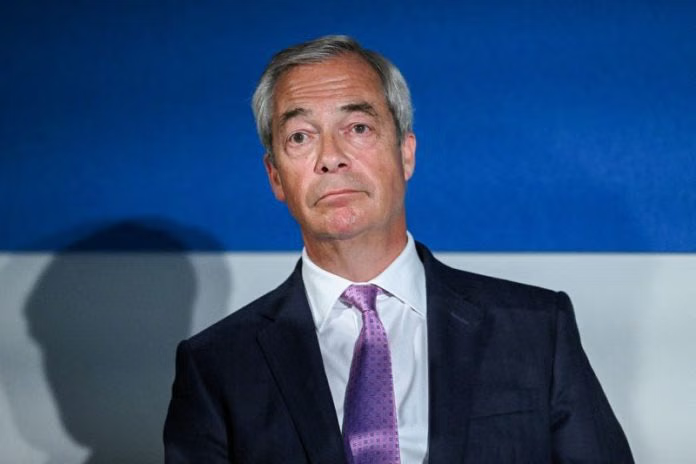Reform UK Unveils Sweeping Immigration Policy: Mass Deportation Plan 🚨
What’s Being Proposed? 📝
Reform UK, led by Nigel Farage, has introduced “Operation Restoring Justice,” a bold immigration policy aiming to detain and deport individuals entering the UK illegally, including women and children. The plan projects deporting approximately 600,000 asylum seekers over a five-year parliamentary term, utilizing former RAF bases for detention and costing an estimated £10 billion. The goal? Stop small boat crossings “within days” by dismantling smuggling networks. 🛥️
Human Rights Rollback ⚖️
To enable mass deportations, Reform UK proposes repealing the UK Human Rights Act, withdrawing from the European Convention on Human Rights (ECHR), and disapplying international treaties like the Refugee Convention and UN Convention Against Torture. The party views these frameworks as barriers exploited to block deportations, but critics argue this could undermine the rule of law and expose vulnerable people to risks abroad. 🚨
Detention and Deportation Mechanics 🏢
The plan establishes a UK Deportation Command and repurposes old military bases to detain up to 24,000 people, replacing hotel accommodations. Anyone arriving “illegally” would be barred from claiming asylum in the UK. Reform UK also proposes payments for voluntary departures and return agreements with countries like Rwanda or Albania, using data fusion to track and remove those without legal status. 🔍
Paying Countries and Pressure Tactics 💸
Farage’s strategy includes paying countries to accept returnees and leveraging aid, visa restrictions, or sanctions to secure cooperation. Potential agreements with nations like Afghanistan and Eritrea have raised concerns about human rights violations, particularly the risk of refoulement—returning individuals to dangerous conditions. 🌍
Legal, Political, and Practical Hurdles ⚠️
The proposal faces significant challenges, including conflicts with UK and international law, ECHR oversight, and operational constraints. Past attempts, like the Rwanda removals, were stalled by legal battles and logistical issues. Critics, including opposition parties and NGOs, call the plan unworkable and inflammatory, warning of diplomatic backlash and risks to returnees. 🏛️
Case Study: The Rwanda Removals Saga 📖
The UK’s prior attempt to deport asylum seekers to Rwanda highlights the complexities Reform UK seeks to bypass. ECHR interim measures grounded initial flights, and even legislative efforts to limit court scrutiny faced obstacles. Processing backlogs and limited third-country agreements further complicate large-scale deportations. 🛬
Hotel Protests and Policy Response 🪧
Recent protests outside migrant hotels, fueled by public safety concerns, have been cited by Farage to justify rapid detention and deportation. Reform UK and Conservatives criticize the government’s “one in, one out” returns scheme with France as inadequate, given the tens of thousands of crossings in 2025. 🚨
Projected Deportations vs. Cost 📊
The chart below, based on Reform UK’s claims, illustrates the projected deportations and costs over five years.
Key Elements of the Plan 📋
| Element | Stated Detail | Source |
|---|---|---|
| Targeted Removals | ~600,000 in first parliament | Farage remarks, media |
| Detention Policy | Women and children detained | Press conference |
| Detention Capacity | RAF sites for 24,000 | Operational plan |
| Estimated Cost | ~£10bn over five years | Reported estimate |
| Legal Changes | Repeal HRA, exit ECHR | Party statements |
| Returns Diplomacy | Deals with Rwanda/Albania | Plan specifics |
What It Means for Britain 🇬🇧
If implemented, Reform UK’s plan would shift the UK toward a strict enforcement-based immigration system, significantly reducing rights protections for non-citizens. However, its success hinges on rapid legal reforms, diplomatic agreements, and operational expansions—all vulnerable to court challenges, international criticism, and logistical limits, as seen in prior efforts like the Rwanda scheme. 🗳️
Frequently Asked Questions ❓
What is the core of the Farage deportation plan?
The plan focuses on detaining all illegal arrivals, including women and children, and deporting them without processing UK asylum claims, supported by exiting human rights frameworks. 🛂
How does Reform UK’s policy affect human rights protections?
It proposes repealing the Human Rights Act, withdrawing from the ECHR, and disapplying treaties like the Refugee Convention to limit court interventions. ⚖️
Will the UK pay countries for migrant returns?
Yes, Reform UK plans to pay countries and use aid, visas, or sanctions to secure return agreements as part of “returns diplomacy.” 💰
Does the plan include detaining and deporting women and children?
Yes, Farage confirmed that “everybody on arrival,” including women and children, will be detained, though handling minors is acknowledged as complex. 👨👩👧
What are the main obstacles to the plan’s execution?
Challenges include legal conflicts, ECHR oversight, treaty obligations, diplomatic hurdles, and logistical issues seen in past efforts like Rwanda. 🏛️
🌐 Explore More on Global Market Today
Dive deeper into the latest updates, insights, and expert analysis across our most popular categories.
Stay informed on business, economy, AI, and more – all in one place.
📈 Market
💼 Business
🏛️ Politics
🤖 Artificial Intelligence
🔧 Technology
₿ Cryptocurrency
🌍 Economy
💰 Personal Finance
⚡ Fintech Tools
Hindi Version
